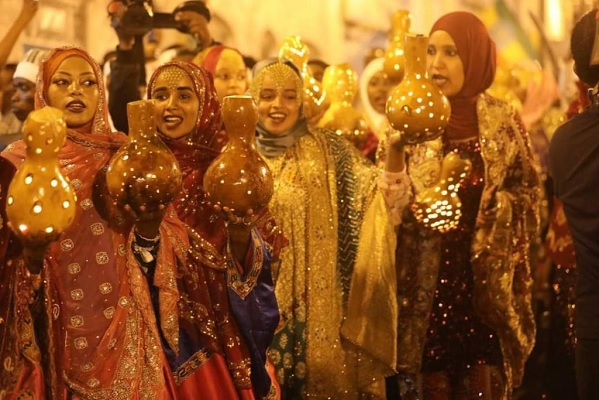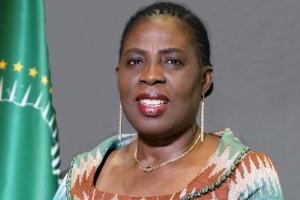
The vibrant tapestry of East African cultures, rich in diversity and tradition, is increasingly recognized as a potent force for fostering people-to-people connections and driving regional integration. Beyond political and economic agreements, the shared heritage of the region offers a unique platform for understanding and collaboration.
The power of cultural exchange, through art, music, and shared traditions, transcends borders, building bridges of empathy and mutual respect. This understanding is the cornerstone of effective cultural diplomacy, a strategy actively pursued by nations seeking to strengthen regional ties.
Art, in particular, acts as a powerful ambassador, offering a window into the soul of a nation. It showcases not only aesthetic beauty but also the values, beliefs, and historical narratives that shape a society. Recognizing this, the Ethiopian government has amplified its focus on promoting and preserving its cultural heritage in recent years, understanding its potential to foster both internal cohesion and external engagement.
This commitment is evidenced by Ethiopia’s significant move towards immediate regional engagement, as it hosts the 2nd East Africa Art and Culture Festival at the Addis International Convention Centre, starting today and continuing until March 23, 2025.
This grand celebration, organized by the Ethiopian Ministry of Culture and Sport, is designed to be a catalyst for regional integration, bringing together artists, performers, and cultural enthusiasts from across East Africa.
The festival aims to showcase the diverse cultural heritage of the region, fostering dialogue and understanding through artistic expression.
It will feature a rich program of performances, exhibitions, workshops, and discussions, highlighting the interconnectedness of East African cultures. This event provides a unique opportunity for people from different countries to connect, share experiences, and build lasting relationships, strengthening the fabric of regional unity.
During a press briefing Nafisa Almahdi State Minister at Ministry of Culture and Sport says that Ethiopia host the 2nd East Africa Art and Culture Festival at Addis International Convention Centre from 20-23 March, to enhance regional integration and showcase its cultural heritage.
The festival, themed “Art and Culture for Regional Cooperation,” will serve as a platform for cultural exchange and economic partnership among East African nations.
At the presser, State Minister Nafisa emphasized Ethiopia’s commitment to leveraging its cultural assets for both domestic development and international engagement.
“Ethiopia, with its profound history, multiculturalism, and natural abundance, stands as a beacon of civilization and independence in the African narrative,” she stated.
“Our diverse cultural and artistic expressions reflect a rich tapestry of heritage that we are eager to share with the world,” Nafisa said.
According to her, the ministry has prioritized policies to nurture and advance the cultural sector, recognizing its pivotal role in holistic development. The East African Arts and Culture Festival is a key component of this strategy, facilitating deeper connections among nations.
“Through our vibrant arts, we aim to elevate Ethiopia’s global profile, showcasing our rich culture, history, and natural beauty,” Minister Nafisa explained. “This initiative will strengthen interpersonal ties, foster regional solidarity, and enhance economic cooperation.”
The on-going festival is set to provide an ideal platform for cultural practitioners and service providers to showcase, promote, and market their offerings. According to Nafisa, the event aims to present a joint display of cultural expressions, facilitating collective showcases of artistic and cultural heritage from East African nations.
The festival is organized with the objective of strengthening regional ties and fostering interpersonal connections among countries in the region. It plays a crucial role in promoting cultural diplomacy by creating a platform for cultural exchange and enhancing regional relationships.
The Ministry highlights that the festival will facilitate the sharing of cultural knowledge and foster brotherhood among nations. Moreover, it will enhance regional relationships through cultural exchange, further solidifying interpersonal connections among East African countries.
According to the ministry, the festival will feature a diverse program, including conferences and research symposia, cultural and craft fairs, circus performances, traditional cuisine, fashion shows, music, film and theatre festivals, and book fairs.
Participating nations include Ethiopia, Burundi, Uganda, Rwanda, Djibouti, South Sudan, Somalia, the Democratic Republic of the Congo, Tanzania, and Kenya.
“This festival underscores Ethiopia’s commitment to cultural diplomacy and its role as a hub for regional collaboration,” Minister Nafisa concluded. “We believe that through art and culture, we can build bridges of understanding and foster a more interconnected and prosperous East Africa.”
Regarding culture and art Ethiopia is taking significant steps to enhance its art sector by focusing on protection and development. Recently, a landmark Memorandum of Understanding (MoU) has been signed between the Ethiopian Ministry of Culture and Sport, the Ethiopian Intellectual Property Authority, and MultiChoice Africa Holdings B.V. As reported by African Business last week, this agreement marks a concerted effort to safeguard Ethiopia’s cultural heritage and bolster its creative economy by combating piracy and strengthening intellectual property rights.
The Ministry of Culture and Sport, dedicated to preserving Ethiopia’s cultural wealth, history, language, art, and sports, is joining forces with the Ethiopian Intellectual Property Authority, responsible for IP protection, and MultiChoice Africa Holdings, a leading entertainment provider in Africa.
This collaboration, building on the Partners Against Piracy (PAP) program, highlights the importance of protecting creative works from illegal distribution, ensuring that artists and creators are fairly compensated for their contributions. This move not only protects economic interests but also safeguards the integrity of cultural expressions, ensuring their authenticity and continued vitality.
Overall, by promoting cultural exchange and protecting intellectual property, Ethiopia is demonstrating its commitment to leveraging its rich cultural heritage to enhance people-to-people ties and contribute to the broader goal of regional integration.
The East Africa Art and Culture Festival, in particular, serves as a powerful symbol of this commitment, offering a platform for cultural diplomacy and fostering a deeper sense of shared identity within the region.
This festival is an example of the power of culture to transcend political boundaries and create a shared space for connection and collaboration, ultimately strengthening the bonds between the nations of East Africa.
BY EYUEL KIFLU
THE ETHIOPIAN HERALD THURSDAY 20 MARCH 2025




